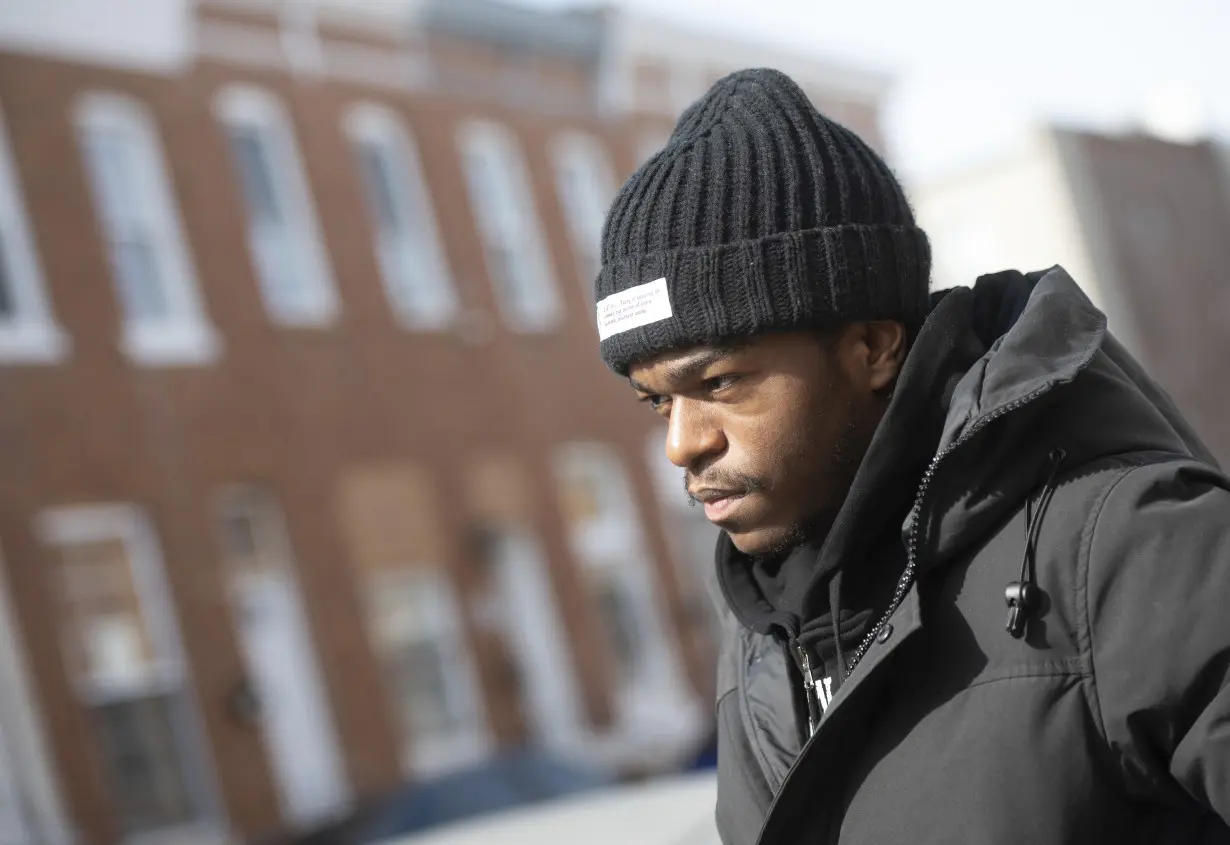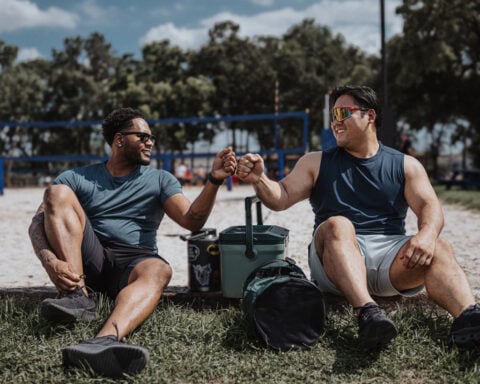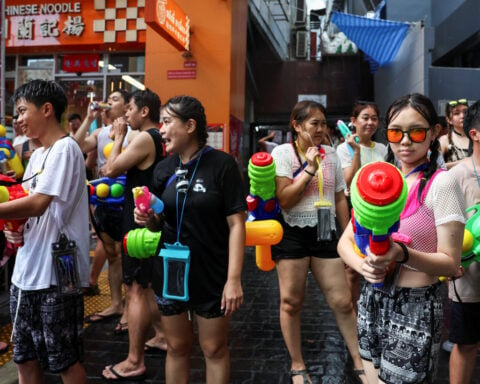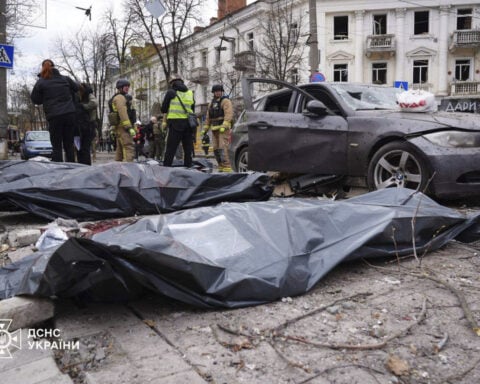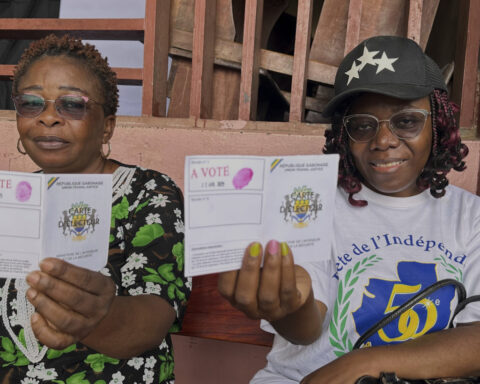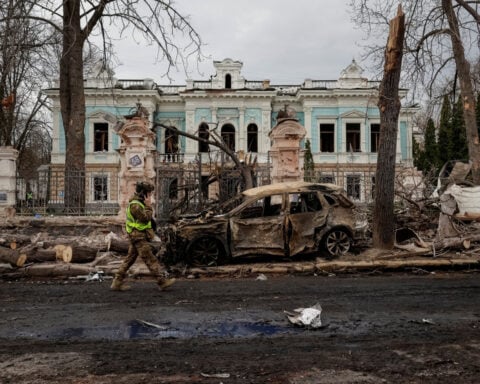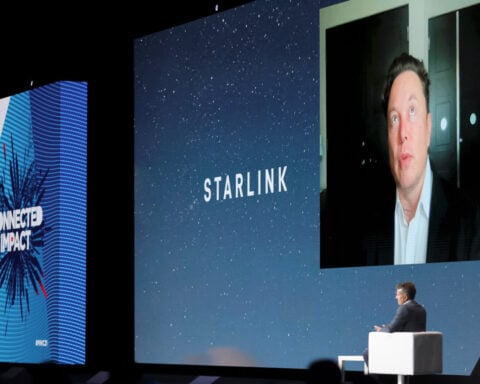BALTIMORE (AP) — Growing up in the streets of east Baltimore surrounded by poverty and gun violence, two kids named Antonio became fast friends. Both called “Tone,” they were similarly charismatic and ambitious, dreaming of the day they would finally leave behind the struggles that defined their childhoods.
One has. The other never will.
Antonio Lee was shot and killed last summer. In the weeks that followed, his friend Antonio Moore warned their peers about the consequences of retaliation, trying to prevent more needless bloodshed and stolen futures in a city that consistently ranks among the nation’s most violent.
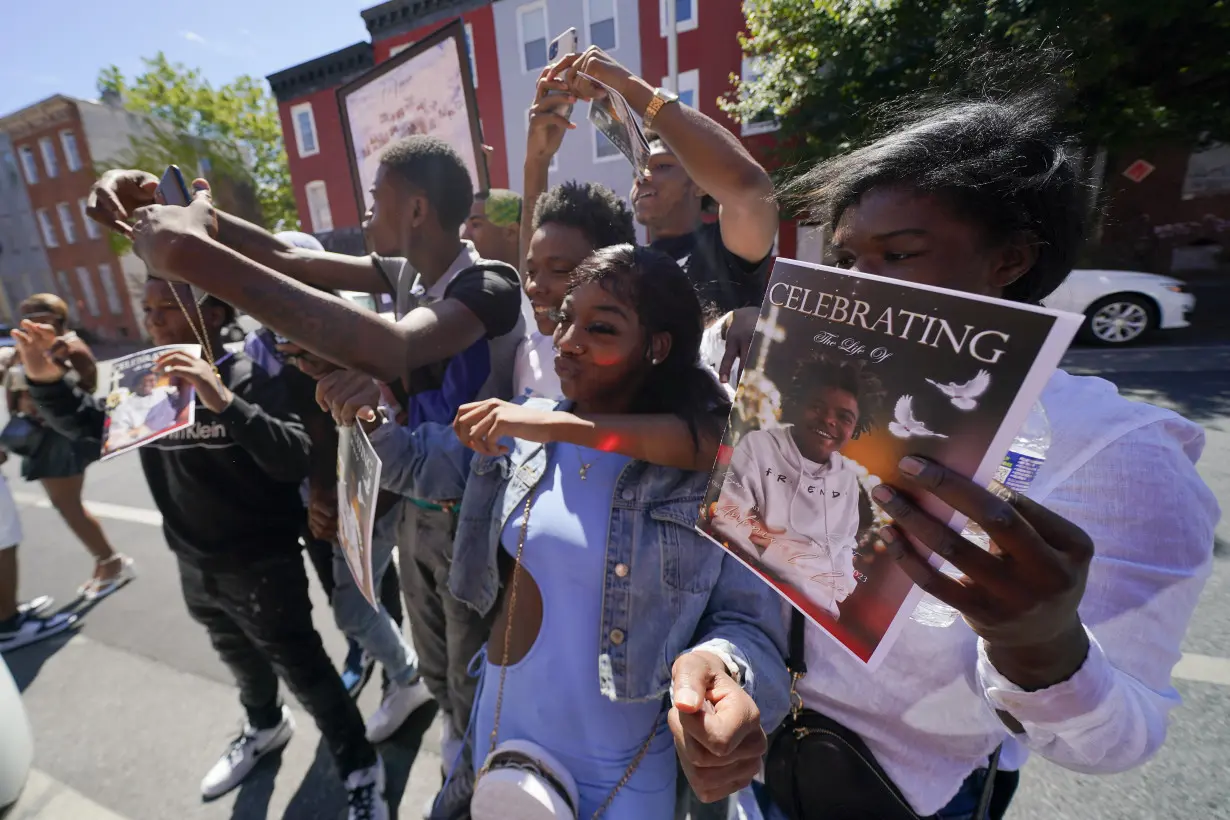
“This s--- will keep going for the next 20 years, or it’ll stop,” Moore said at Lee’s funeral service in August. “Y’all gotta make a choice.”
Moore, 24, is a successful real estate investor and entrepreneur. He founded a consulting company that helps brands and nonprofits connect with urban youth. His accomplishments serve as a reminder of what’s possible.
Moore said Lee was committed to forging a similar path; he just didn’t have enough time to see it through.
How was Moore able to break the negative cycles of his youth while Lee fell victim to them?
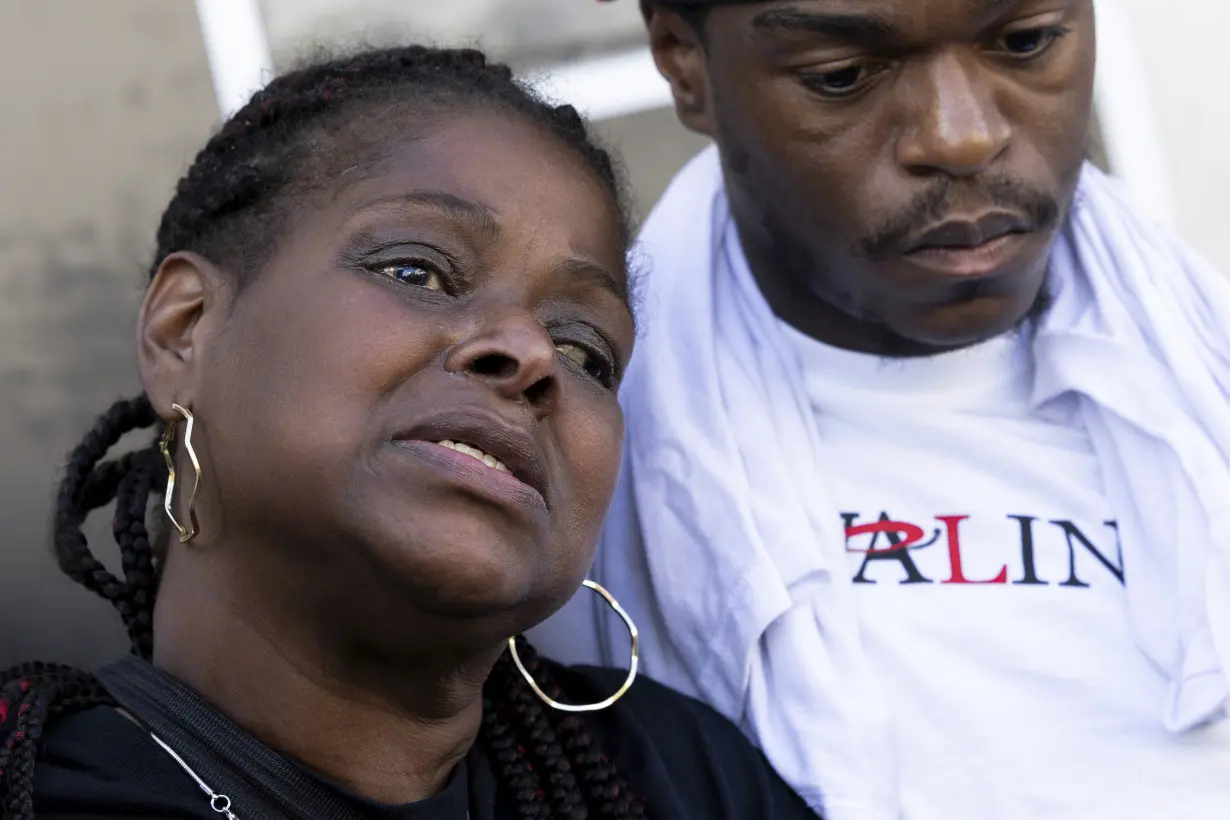
It’s a question with no simple answers, but their disparate fates highlight the sometimes insurmountable challenges facing young Black men from Baltimore’s poorest neighborhoods and similar communities across the country. They live in a world where rampant gun violence often draws an arbitrary line between life and death, where the fight for survival is constant and trauma is passed down through generations.
And the hurdles don’t stop there: underperforming schools, limited job opportunities, inadequate public transportation, inaccessible health care, housing insecurity and an embattled criminal justice system that disproportionately locks up people of color. Guns and drugs are readily available. Hope is hard to come by.
Beating the odds is possible, but it requires an extraordinary combination of hard work and good luck.
Above all, it requires time.
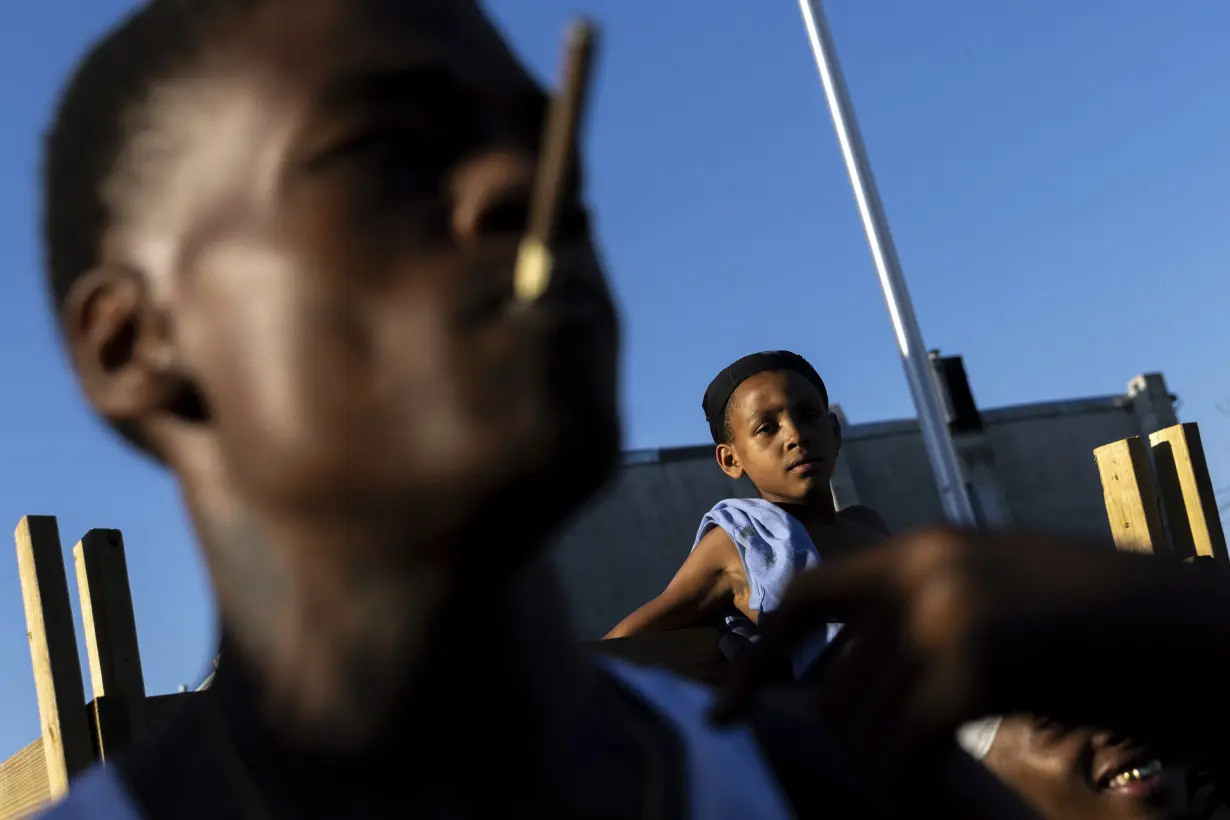
——
On the afternoon of his death, Lee was washing windshields at a busy northeast Baltimore intersection when gunfire broke out. His loved ones believe he was killed over a dispute between rival groups from different sections of east Baltimore. No arrests have been made in the case.
Lee died about four months before his 20th birthday. A second victim survived his injuries.
Stories like this are painfully common in Baltimore even as the city’s homicide rate overall trends downward.
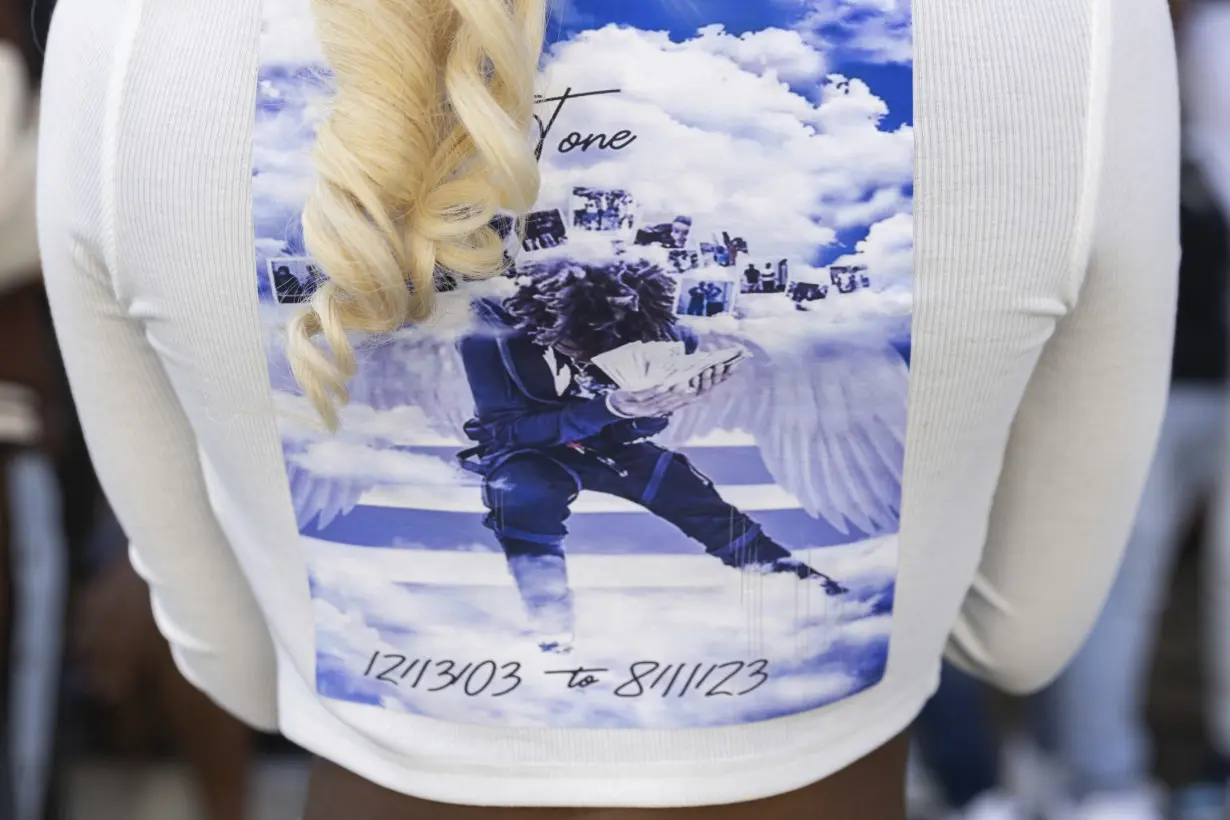
Lee’s life unfolded in forgotten communities suffering from decades of population loss and unchecked drug activity. He attended Baltimore’s underfunded public schools. Money was tight at home.
He came from a loving family, but his childhood was punctuated by tragedy. A brother was shot to death in North Carolina and a sister died from brain cancer. As the youngest child, Lee clung to his mother and surviving sister for support.
Several of his close friends were killed as teenagers, including a Baltimore high school football player whose death rocked the city two years ago when he was gunned down in his school’s parking lot less than an hour before a scheduled home game.
Lee mourned them all, and he was acutely aware of the danger he faced simply operating in his environment, according to friends and family. That’s one reason he was fighting to get out.
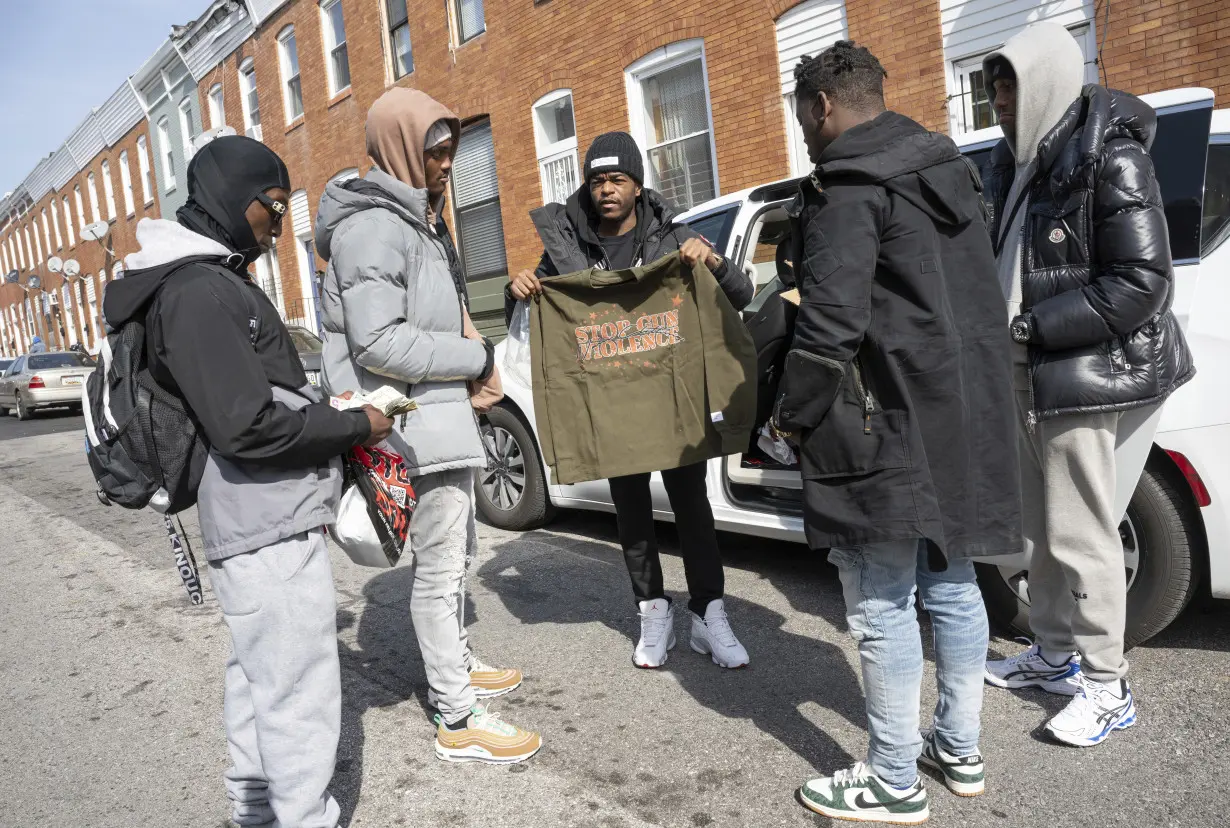
Statistically, he was fighting a losing battle. Black children grow up in some of the country’s poorest households. Compared to their white counterparts, research shows they’re significantly less likely to achieve upward economic mobility: About three-quarters of Black children born in the lowest income bracket will remain there for the rest of their lives. They’re also about five times more likely to die in gunfire.
Lee talked about moving to Atlanta or maybe Florida, somewhere he would feel safer. He just needed to save up enough money to make it happen.
He was constantly brainstorming potential business opportunities — everything from music production and real estate investment to trash collection.
He started working at McDonald’s and considered taking culinary classes. He loved to cook and bake. His funeral program listed some of his favorite dishes: pasta, chicken wings, banana pudding.
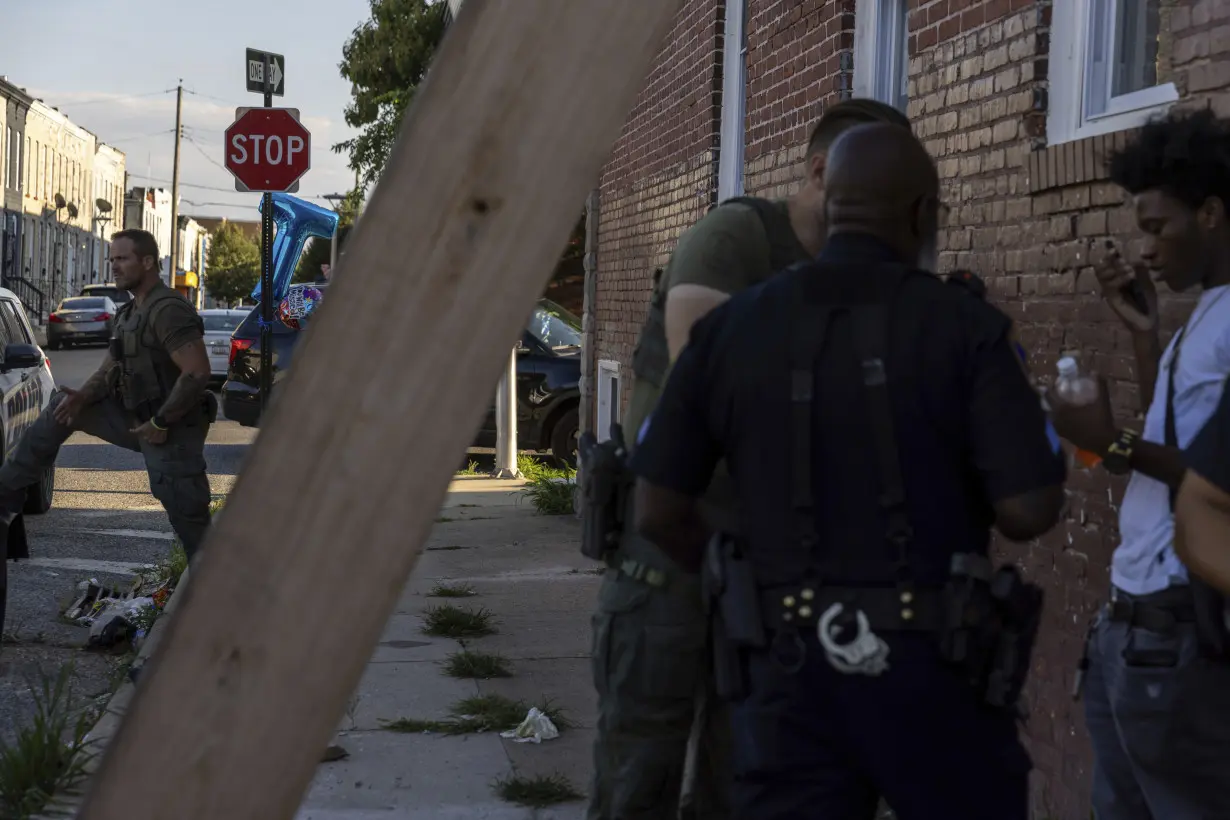
Lee was enrolled in one of Baltimore’s flagship anti-violence programs through the nonprofit Roca, which provides mentoring, job training, GED classes and other services. He was meeting with his mentor regularly; they last spoke just hours before the shooting while Lee was brushing his teeth. Despite having a mouthful of toothpaste, he answered the phone with his signature greeting, an enthusiastic “Hey baby!”
Wherever he went, Lee would show up well-dressed and smiling, usually sporting a spotless pair of Air Jordan 5s, his favorite sneaker. As an aspiring rapper, he kept his finger on the pulse of music and fashion trends.
“A lot of these kids, their souls are like vacant buildings,” said Terry “Uncle T” Williams, who founded a youth mentorship program in east Baltimore after his son was killed. “Antonio was really ambitious. He had a big heart. He stood out like a sore thumb for this reason.”
Lee’s optimism was contagious. He was curious and open-minded. He wanted to make his community proud.
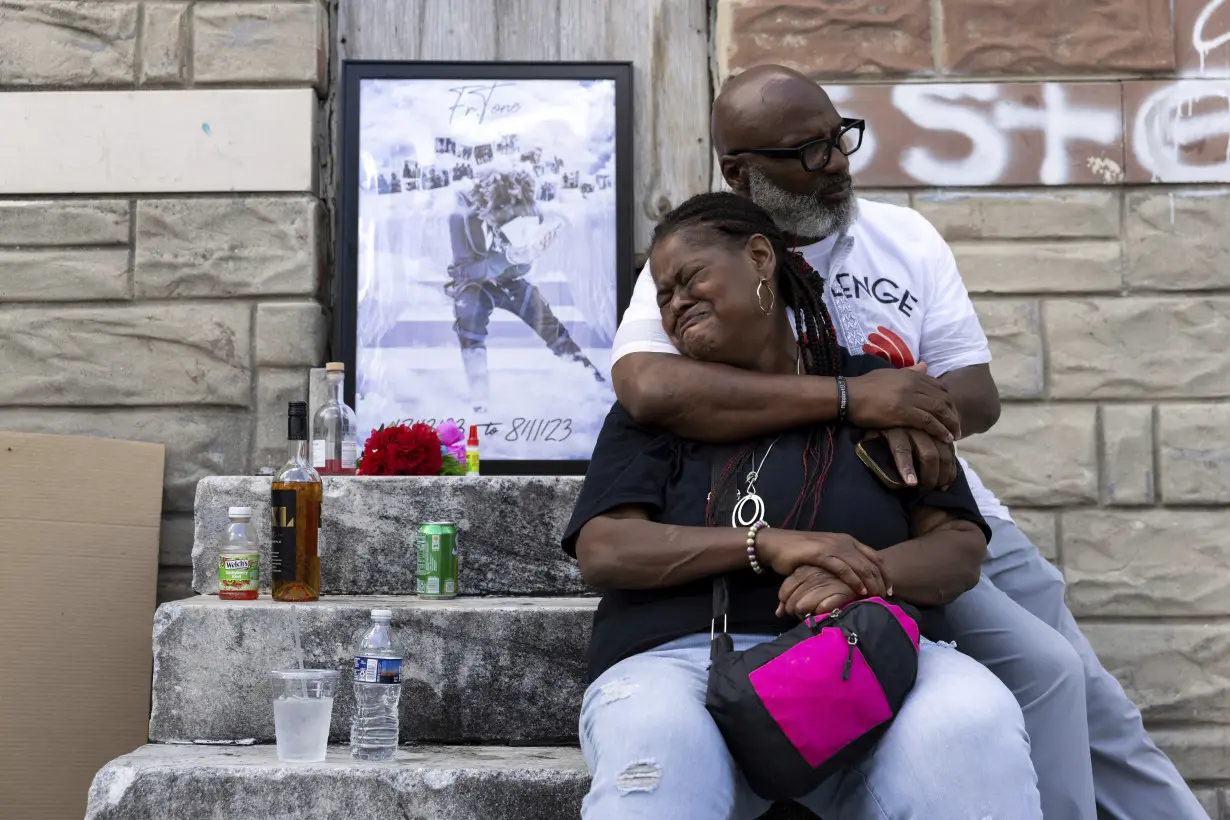
“He was just so young,” said Brandon Taylor, a Baltimore attorney who represented Lee. “I feel like Mr. Lee was a damn baby.”
At the same time, he was forced to grow up fast, especially after his older brother was killed in 2019. Lee was grappling with a question facing many of Taylor’s clients: Was it worth carrying a gun for protection despite the risk of getting stopped by police?
“But fighting and violence, that’s not what Mr. Lee was all about,” Taylor said. “So when I heard about him dying, that kind of crushed this whole firm.”
Just weeks before his death, Lee met with Taylor about a recent arrest for fleeing police and traffic violations. Taylor shook his head, recalling how Lee sped home and climbed through a window instead of complying with the traffic stop.
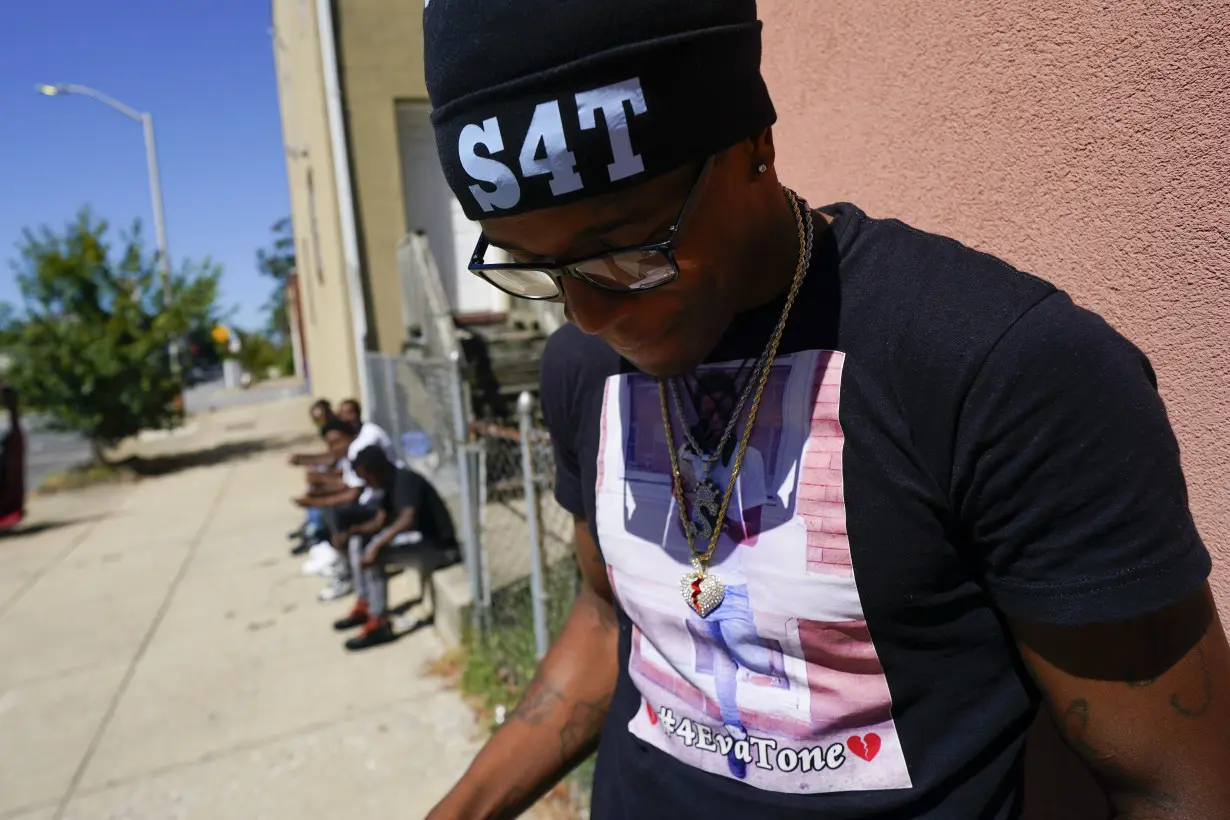
After the shooting, loved ones were similarly left wondering what was going through Lee’s mind when he decided to wash windshields in northeast Baltimore, an area he normally avoided because of ongoing neighborhood beef. He was squeegeeing with a friend that afternoon.
Baltimore’s squeegee workers have long been a fixture at some of the city’s busiest intersections. Mostly young Black men from east and west Baltimore, they’re typically desperate for cash. But their numbers have been dwindling since a 2022 initiative from the mayor’s office sought to discourage the practice and banned panhandling in certain locations.
Lee must have needed supplemental income and decided to take a chance, loved ones said. It was a mistake he couldn’t afford to make.
——
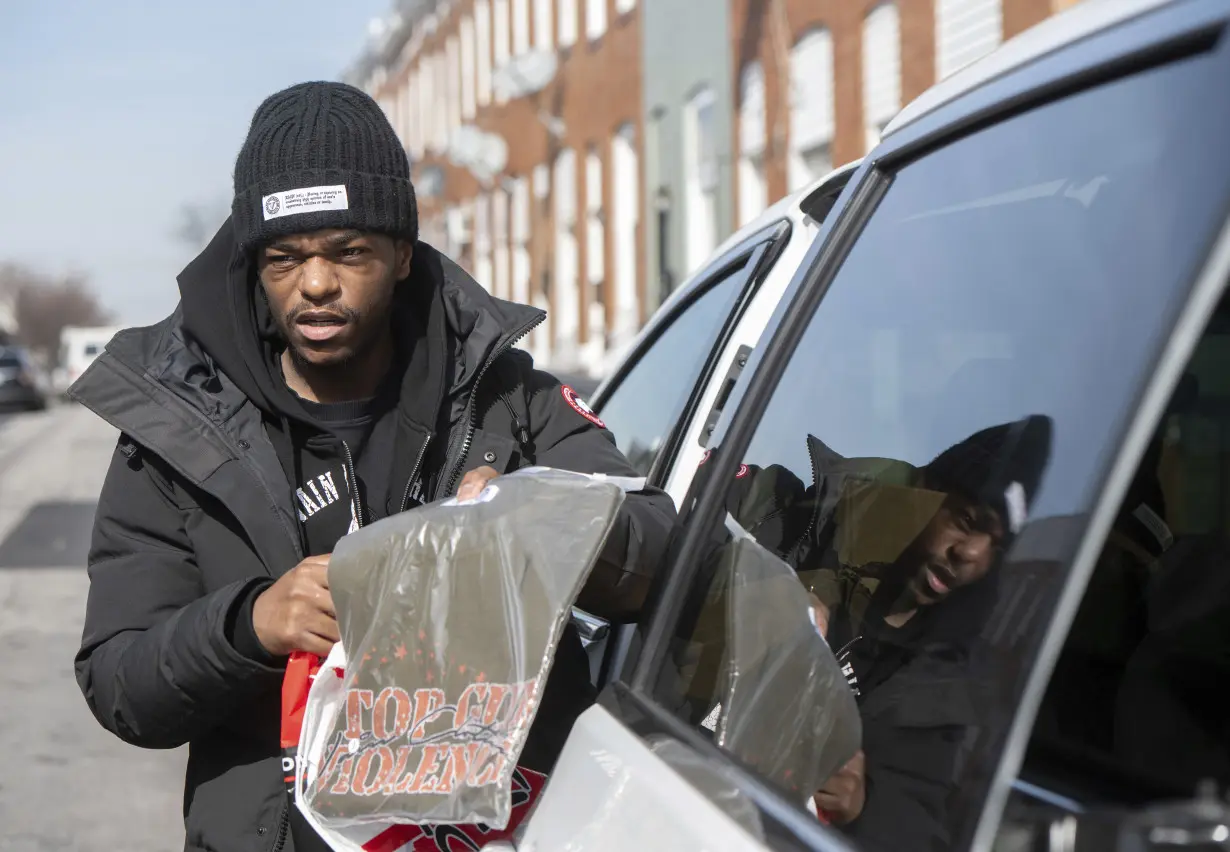
While Lee’s death added to already devastating statistics, Moore is living proof of what happens when the pendulum swings the other way.
Moore grew up in the same forgotten neighborhood and struggling school system. He basically stopped going to class junior year, but he still graduated from high school thanks to a grade-changing scheme that was later detailed in a state inspector general’s report and led to districtwide policy changes.
As a teen, he spent most days gambling and selling weed, occasionally dodging gunfire. He was making decent money in the streets. And despite the near constant threat of getting shot or arrested, it was a familiar environment, a known quantity, a source of instant gratification.
But ultimately, the risks seemed to outweigh the rewards. Moore tried to envision a positive future for himself and started hanging around people who seemed like good role models.
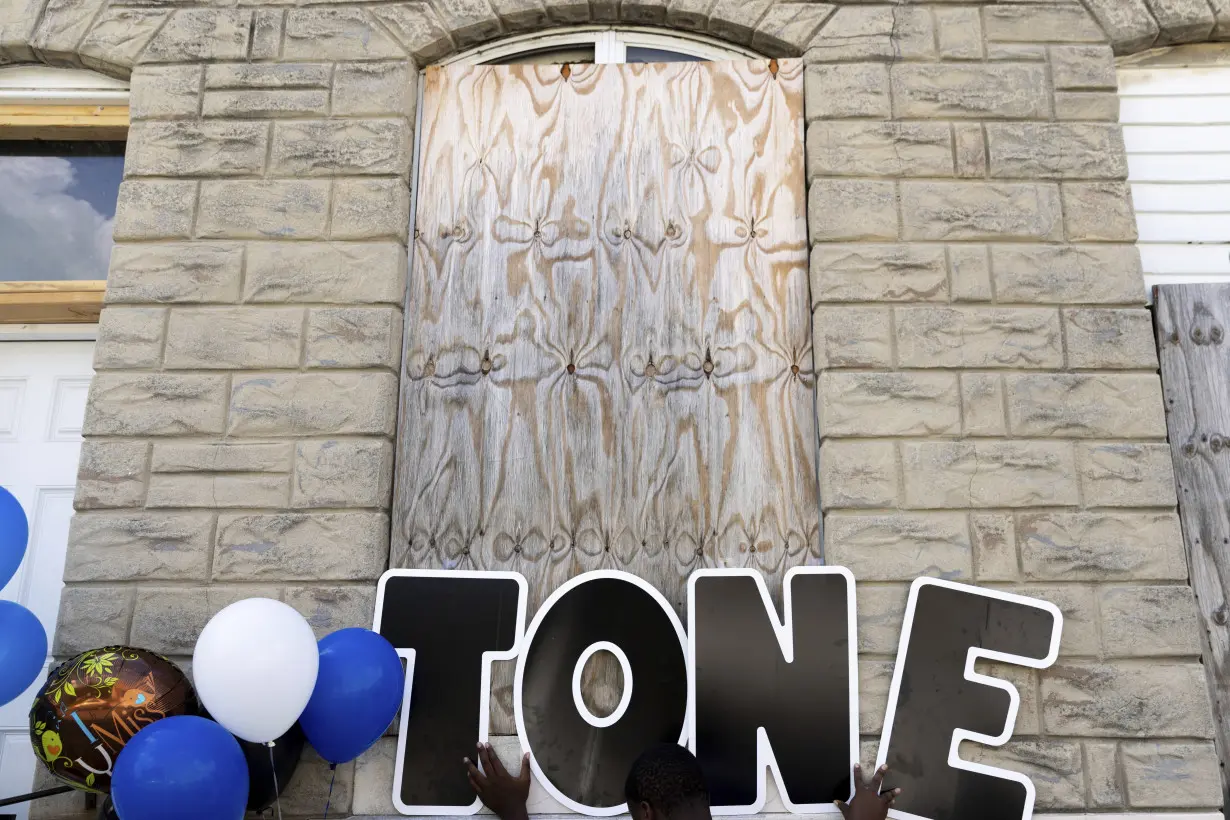
He got a job at Chipotle, where he learned how to operate in a corporate setting and talk to customers. One day, he struck up a conversation with a man who worked in Baltimore’s wholesale real estate market.
“Hit me up when you’re ready to make real money,” Moore remembers the man telling him. So he did.
Moore quit Chipotle after about a year. By then, he was supporting himself as a property wholesaler, coordinating deals between buyers and sellers. It was a lucrative trade that required no professional license or college degree. Moore said his most important asset was his knowledge of Baltimore’s neighborhoods, crime trends, local politics and other factors that could inform investment decisions. The city’s glut of vacant rowhouses provided ample opportunities.
Meanwhile, Moore also began developing relationships with advocates and business leaders focused on improving conditions for teens and young adults living in poverty.
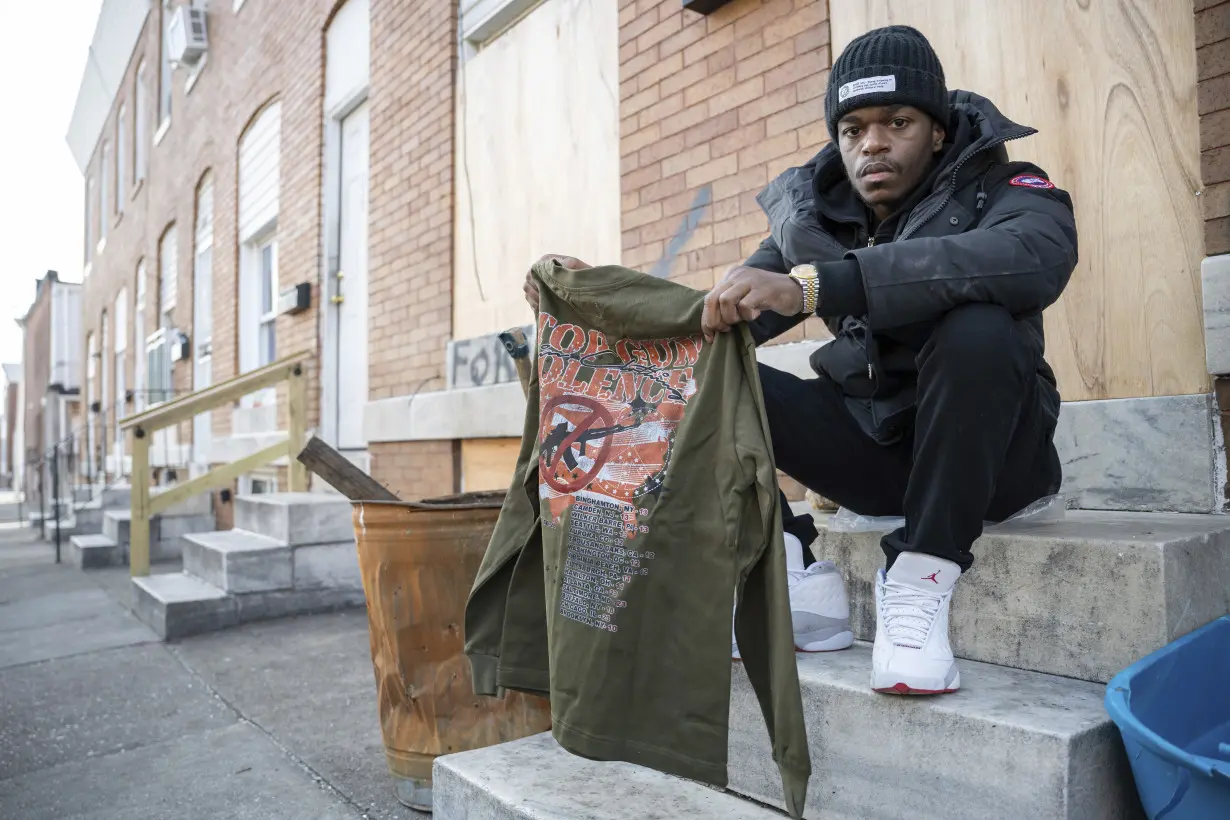
Moore said those interactions made him realize the value of his perspective — not in spite of where he came from, but because of it. He launched a consulting firm in 2021.
As a marketing consultant, he advises businesses and nonprofits on how to connect with a Gen Z audience. His current client list includes YouTube and the national anti-violence organization Everytown for Gun Safety.
Last year, Moore organized a collaboration between Everytown and three local Baltimore streetwear designers. During a recent visit to his childhood neighborhood, he caught up with old friends and handed out shirts emblazoned with the organization’s message: “STOP GUN VIOLENCE”
Moore was able to make it out of the streets, but he can’t escape the social media posts perpetuating Baltimore’s intractable cycles of youth violence. Some nights, he lies awake wondering how to stop them, grappling with complex questions that criminologists, public health experts and politicians have repeatedly failed to answer.
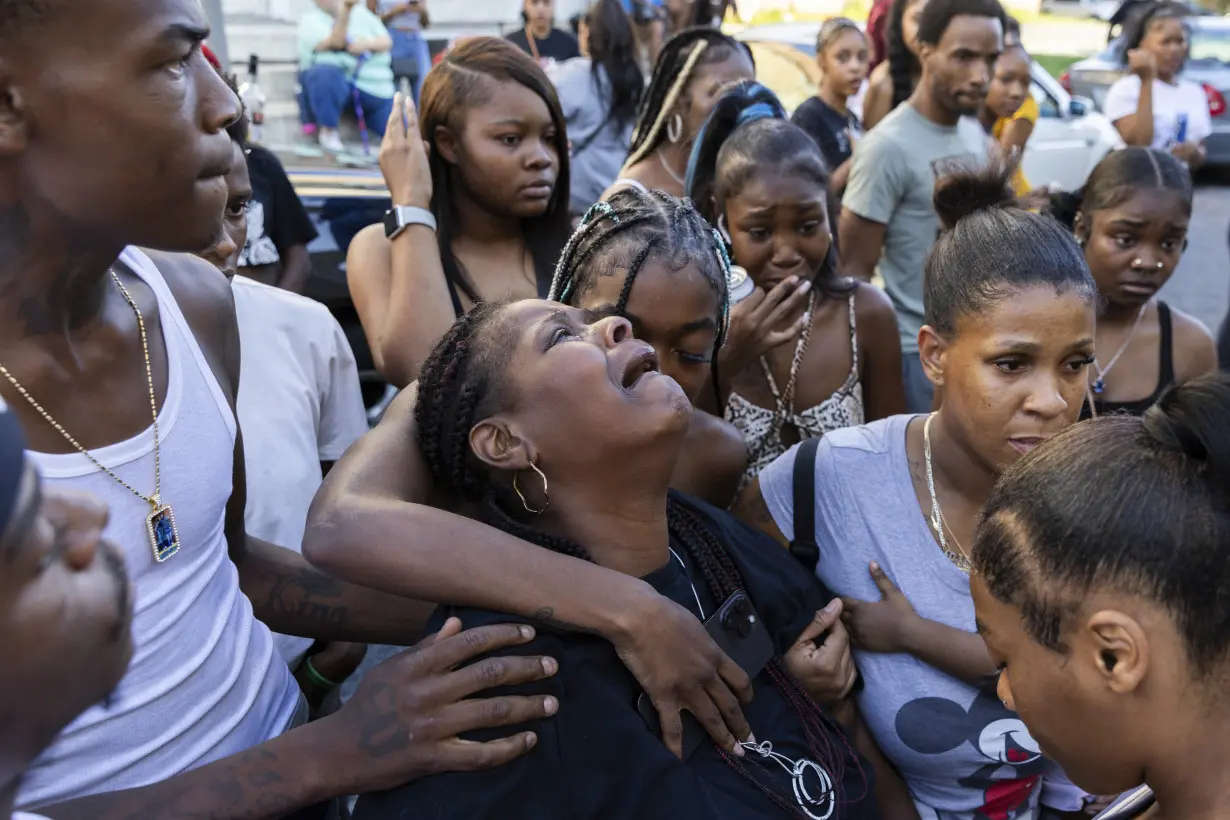
“It’s so easy to self-sabotage yourself in the city. It’s easy to stunt your own growth because that’s what the environment breeds,” he said. “You have to see a future and want it more — really want it.”
It was an uphill battle as Moore pushed himself to embrace the unknown. Aside from a few lucky breaks, he attributes his success to an inquisitive mind, strong social skills, discipline and drive. Those qualities may have served him well, but they’re not particularly unique.
“The thing is, there are so many more kids like me,” he said.
One of them was Lee, who considered Moore a role model of sorts. The pair developed a close friendship based on shared experiences and similar goals. In between watching sports, listening to music and going shopping, they talked about Lee’s future: how he dreamed of finding a lucrative career and buying his mom a house. Moore offered advice and support. He thought Lee was next in line for success.
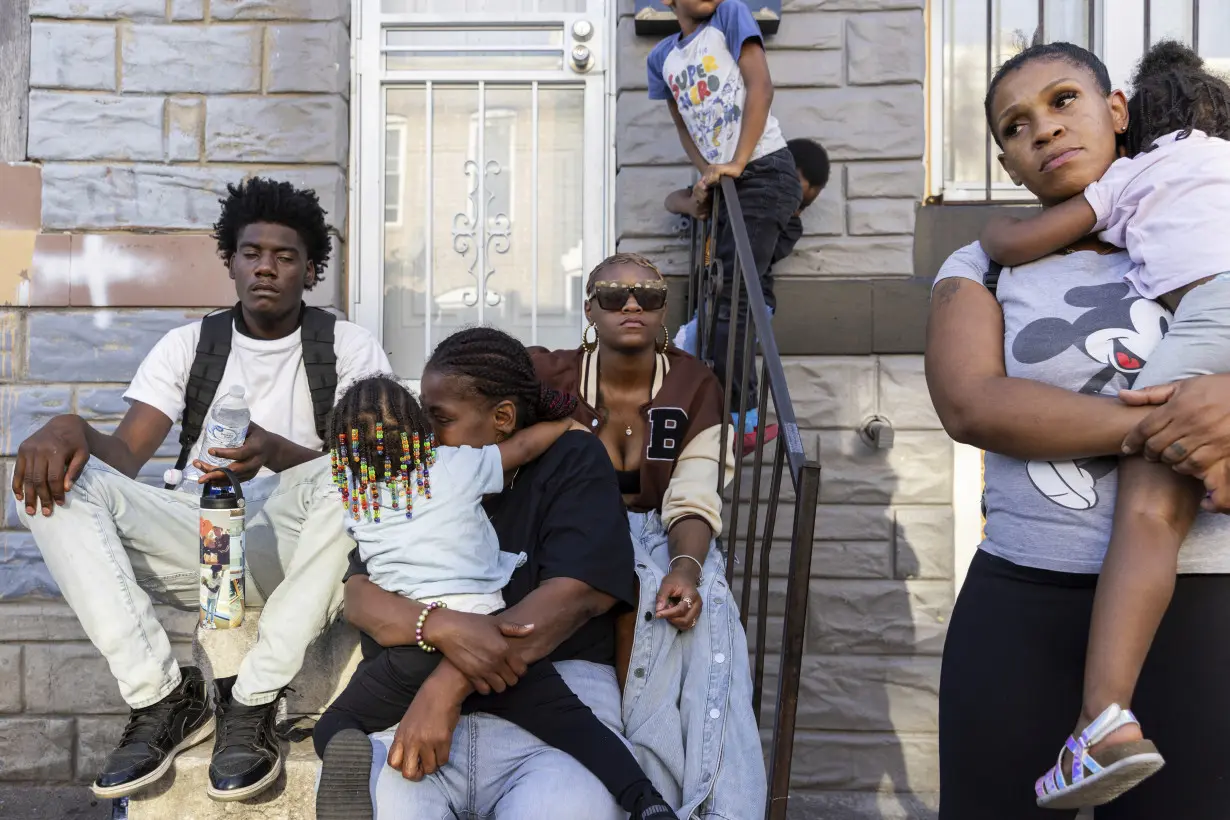
Moore was visiting Chicago when he heard about the shooting. He rushed back to Baltimore, unable to shake the feeling that somehow he’d failed his little brother.
“I’m so mad he got killed because kids younger than him would have been influenced and inspired by him, too,” Moore said. “It possibly could have helped change a whole generation.”
——
A week after Lee’s death, family members organized an evening vigil in the heart of east Baltimore. Against a backdrop of abandoned brick rowhouses, they constructed a makeshift memorial with photographs from his childhood. They decorated nearby stoops with bunches of blue balloons and spelled “TONE” with cardboard letters fastened to a boarded-up window.
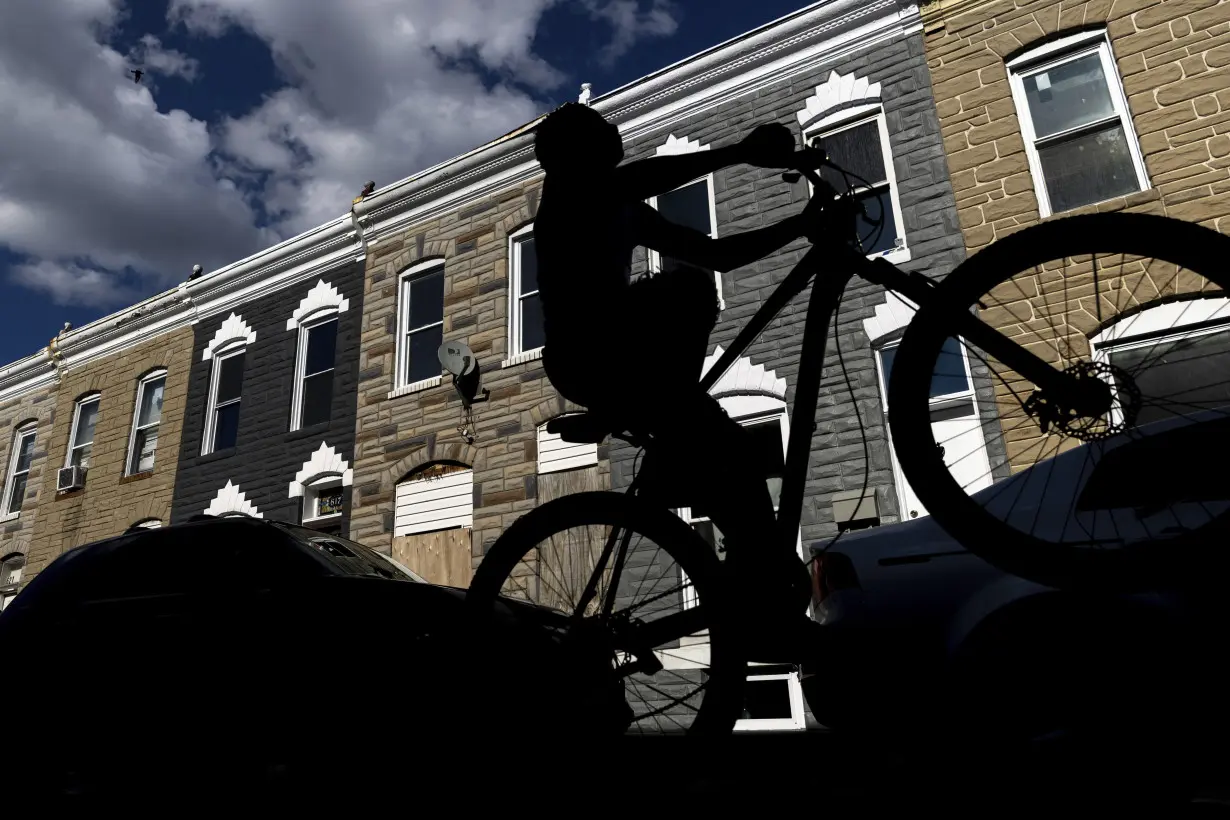
The crowd grew to around 100 people, filling the sidewalks and spilling into the street as Baltimore police officers watched from a distance. Mourners sipped from liquor bottles and lit candles while hip-hop music blasted in the background. They laughed and cried together, carrying out a series of rituals that have become all too familiar in Baltimore’s most underserved communities.
Moore walked to a corner store and bought candy for some of the younger kids. He visited with a friend who had recently come home from jail. He hugged Lee’s mom while she sobbed for several minutes.
Instead of inspiring others, Lee’s story had become a cautionary tale.
“Right now, this city is known for its pain,” said John Young, a local pastor who mentored Lee and officiated his funeral service. “The future leaders of this world are being eliminated.”
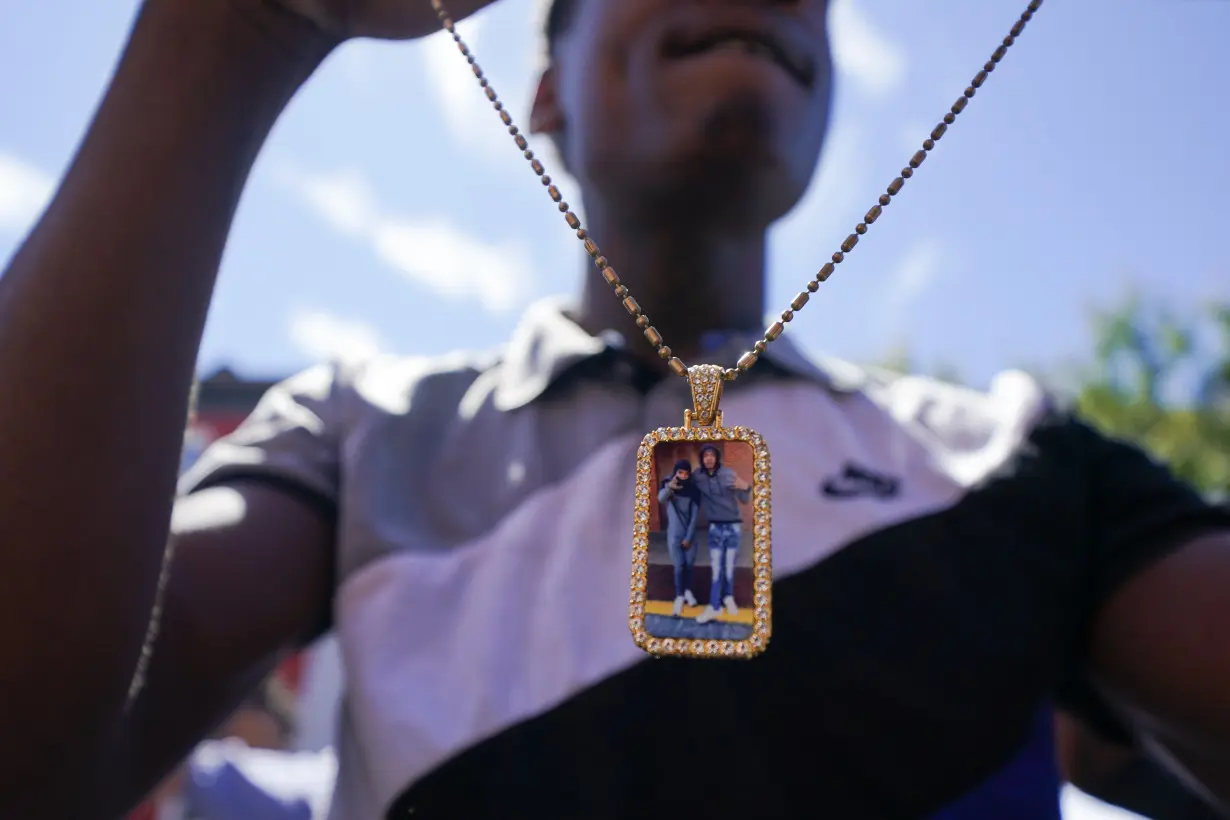
During the funeral, Young asked how many people in attendance had experienced similar tragedies before. Dozens raised their hands.
He used the moment to send a clear message to Lee’s peers, other young men on the brink of adulthood, caught somewhere between forgiveness and revenge, ambition and resignation.
“I want y’all to make a decision. Think about Tone and how you’re gonna remember him,” Young said. “How many of y’all don’t want to look in a casket and see yourself in it? Aren’t you tired of watching other people’s mothers cry?
“Tone wanted to change and he had the courage to admit it. … Now it’s your turn to do something for him — live.”
Moore, for his part, tries to live by example.
He remains immersed in the community that raised him, even when it feels like he’s straddling two worlds. He understands both sides of the equation, the challenges and the possibilities.
“Where we come from, we’re so lost, we’re not thinking our life matters,” he said. “But there’s a place for us out there. We don’t have to stay outcasts just because we were born into this.”
His insight comes from personal experience, but to many other young people growing up under similar circumstances, his accomplishments seem like an impossible pipe dream. Moore searches desperately for the words that will finally make them realize their untapped potential.
In a world where the future is anything but guaranteed, how do you inspire hope?
It’s a piece of advice he gave Lee countless times: “You are valuable,” he tells anyone who will listen. “You really gotta stay alive long enough to catch on.”

 Trump has begun another trade war. Here's a timeline of how we got here
Trump has begun another trade war. Here's a timeline of how we got here
 Canada's leader laments lost friendship with US in town that sheltered stranded Americans after 9/11
Canada's leader laments lost friendship with US in town that sheltered stranded Americans after 9/11
 Chinese EV giant BYD's fourth-quarter profit leaps 73%
Chinese EV giant BYD's fourth-quarter profit leaps 73%
 You're an American in another land? Prepare to talk about the why and how of Trump 2.0
You're an American in another land? Prepare to talk about the why and how of Trump 2.0
 Chalk talk: Star power, top teams and No. 5 seeds headline the women's March Madness Sweet 16
Chalk talk: Star power, top teams and No. 5 seeds headline the women's March Madness Sweet 16
 Purdue returns to Sweet 16 with 76-62 win over McNeese in March Madness
Purdue returns to Sweet 16 with 76-62 win over McNeese in March Madness
